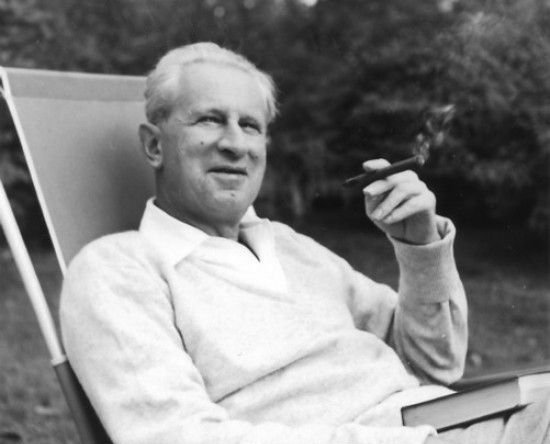Freedom of enterprise was from the beginning not altogether a blessing. As the liberty to work or to starve, it spelled toil, insecurity, and fear for the vast majority of the population. If the individual were no longer compelled to prove himself on the market, as a free economic subject, the disappearance of this freedom would be one of the greatest achievements of civilization.

"Herbert Marcuse" was a German American philosophy/philosopher, sociology/sociologist, and political philosophy/political theorist, associated with the Frankfurt School of critical theory. Born in Berlin, Marcuse studied at the universities of Berlin and then at Freiburg, where he received his Ph.D. He was a prominent figure in the Frankfurt-based Institute for Social Research – what later became known as the Frankfurt School. He was married to Sophie Wertheim (1924–1951), Inge Neumann (1955–1972), and Erica Sherover (1976–1979). In his written works, he criticized capitalism, modern technology, historical materialism and entertainment culture, arguing that they represent new forms of social control.
After his studies, in the late 1960s and the 1970s he became known as the preeminent theorist of the New Left and the student movements of Germany, France, and the US. Between 1943 and 1950, Marcuse worked in US Government Service, which helped form the basis of his book Soviet Marxism: A Critical Analysis (1958). Celebrated as the "Father of the New Left", his best known works are Eros and Civilization (1955) and One-Dimensional Man (1964). His Marxist scholarship inspired many radical intellectuals and political activists in the 1960s and 1970s, both in the U.S. and internationally.
If you enjoy these quotes, be sure to check out other famous philosophers! More Herbert Marcuse on Wikipedia.Obscenity is a moral concept in the verbal arsenal of the establishment, which abuses the term by applying it, not to expressions of its own morality but to those of another.
If mass communications blend together harmoniously, and often unnoticeably, art, politics, religion, and philosophy with commercials, they bring these realms of culture to their common denominator -- the commodity form.
That which is cannot be true.
Not every problem someone has with his girlfriend is necessarily due to the capitalist mode of production.
The people recognize themselves in their commodities; they find their soul in their automobile, hi-fi set, split-level home, kitchen equipment.
The web of domination has become the web of Reason itself, and this society is fatally entangled in it.
Copyright © 2024 Electric Goat Media. All Rights Reserved.